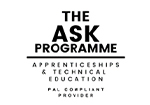Blog

How to find work experience
24th June 2022
Finding work experience can seem daunting at first but understanding why work experience is important and what you want to get out of it can make it a lot easier. If you don’t find an opportunity to do some work experience during term time, the holidays are a great time to use and you can make the most of your time off school.
Why is it important to have work experience?
You may not know which path to take yet and that’s OK. Work experience can allow you to get a better idea about the careers you might be interested in and how these might fit your interests and skills. For example, undertaking medical work experience could make you realise that you really enjoy the science involved in medicine, but not the people skills and responsibility required.
Many of the skills and qualities that you develop during work experience are “transferable” between a range of different job roles. For example, communication, teamwork, problem-solving and time-management are important in various roles.
How does work experience help you choose a career?
Identifying and researching careers that you are interested in is a helpful first step, but one of the best ways to understand if a job is right for you is to spend some time with an employer. You could do this through a formal placement, shadowing someone for a day or two or simply by having a chat with somebody in the industry and asking questions to find out what the work really involves.
Work experience can also help you to get to know yourself better, understand what kind of things you like at work and just as important- the kind of things you don’t enjoy!

How to start looking for work experience?
-
Friends and family. It is always worth finding out if someone you know has contacts in your career area of interest. Even if they cannot offer you work placements, maybe they can give you some good advice or a day of job shadowing.
-
School alumni network. Many schools stay connected with former students so they can offer advice and support to current pupils. Find out whether your school has an active alumni network and whether you can reach out to it.
-
Futuresmart Essentials. If your school is signed up for our essentials package you will have access to our work experience resources. Please see the sign-in page here.
-
Work sector search. If you know that you want to work in the media, finance, engineering, media, law or another specific sector, Studentladder and Workladder have listings based on particular professions and industries. Some sector-specific websites such as Spacecareers also list organisations that offer work experience.
-
Virtual work experience. There is a wide range of virtual work experiences now on offer and SpringPod and The Forage are great places to look for opportunities across a range of sectors. In some cases, it can be easier to gain virtual work experience than the real-life equivalent and some virtual programmes can be completed at a time that suits you. You can also fall back on virtual options if you’re struggling to find real-life opportunities and just like the real-world version, you can include it on your CV and in other applications, mentioning what you have gained from it.
-
Student career sites. Student career websites often list up-to-date opportunities for both sixth-formers and university students. Even if the initial listing is for university students it is worth looking at the company’s website to see if they offer anything for sixth-formers. Have a look at Studentladder, Prospects and Target Careers.
-
Go local. Use Google to find local companies. Even if they don’t advertise opportunities, you could make what is called “an unsolicited approach”. Take the initiative to contact companies directly and ask. Start with a small request. This could be for job shadowing or simply some advice about getting into the sector. A small step can open the way to a conversation about work experience. You might find a local organisation, such as Bristol’s FutureQuest, has gathered lots of opportunities together.
-
Social media. Companies often post their opportunities on their social media feeds. Want to work in television? Follow the big companies online for example @bbcgetin. You can also follow hashtags# such as #workexperience and #virtualworkexperience which will contain lots of up-to-date opportunities.
-
Employer’s insight days/week. Some organisations offer you the chance to spend a day or more seeing for yourself what working there would be like and meeting employees. These are particularly common within Law, Finance and Engineering sectors. You will need to check which are open to 6th formers and you may need to do this by going to individual firms’ websites to find this out. Here is a good example from Burges Salmon.
How to develop transferable skills through work experience:
Work experience is a great way to develop transferable skills. Here are a few different types of work experience and how they help you develop the skills that employers are looking for.
-
Volunteering and fundraising. There are lots of volunteering opportunities out there. You could walk dogs for an animal charity, volunteer in a charity shop, help with an outdoor conservation project, collect funds or support young disabled people on activity days. These could help you demonstrate that you are reliable, have good communication skills, can work well in a team and are able to take on responsibility – all attractive skills and qualities that a future employer might be looking for.
-
Part-time jobs. Working in a shop gives you customer service and time management skills. Doing a paper round or babysitting can also develop your responsibility and resilience. Employers like evidence that you are punctual and reliable.
-
Entrepreneurship. This could be taking the initiative by having a regular summer stand at a car boot sale, selling your own creations on Etsy or selling clothes from your wardrobe on DEPOP. To complete these sorts of sales activities, you might be using skills in numeracy, written or verbal communication, negotiation and working to a deadline.
Remember there are lots of ways to develop the skills and experience that employers and universities want. Finding work experience often takes time and persistence. Trying lots of different approaches like those above will give you the best possible chance. Good luck!



 0330 311 9509
0330 311 9509 







